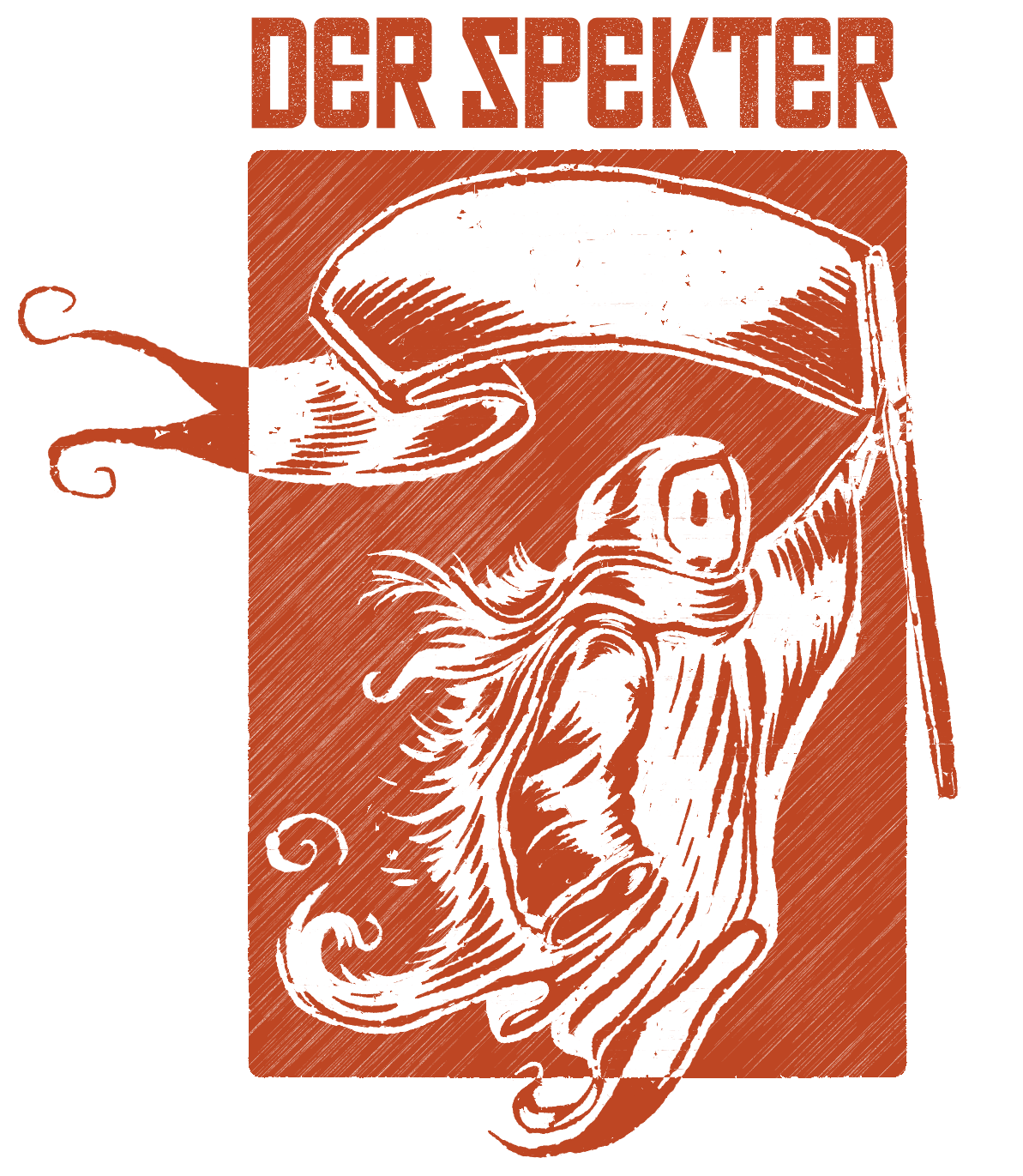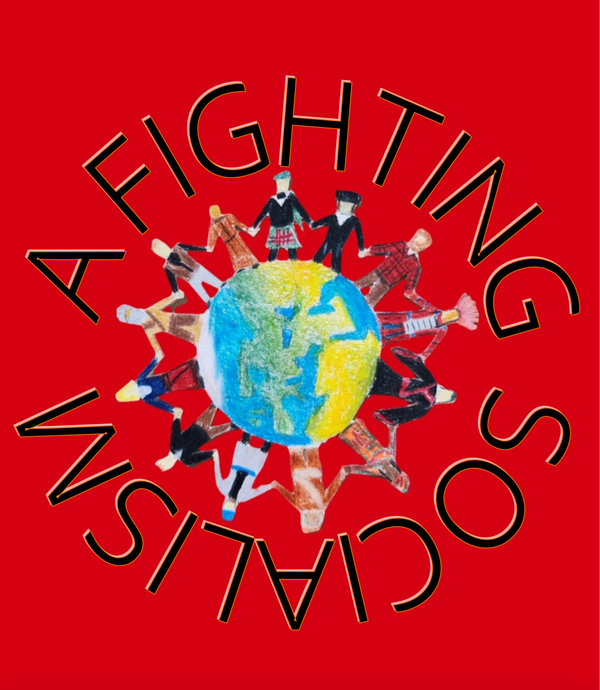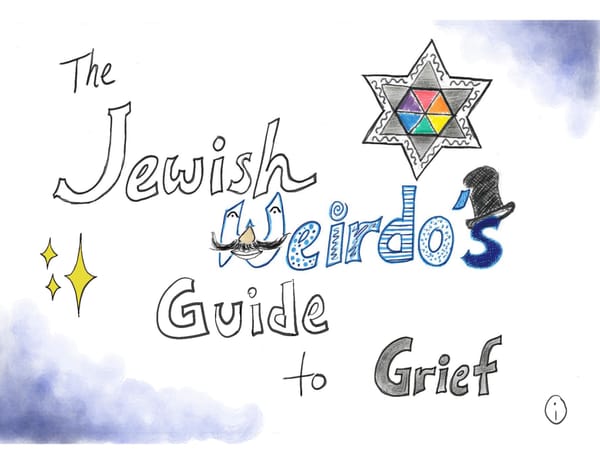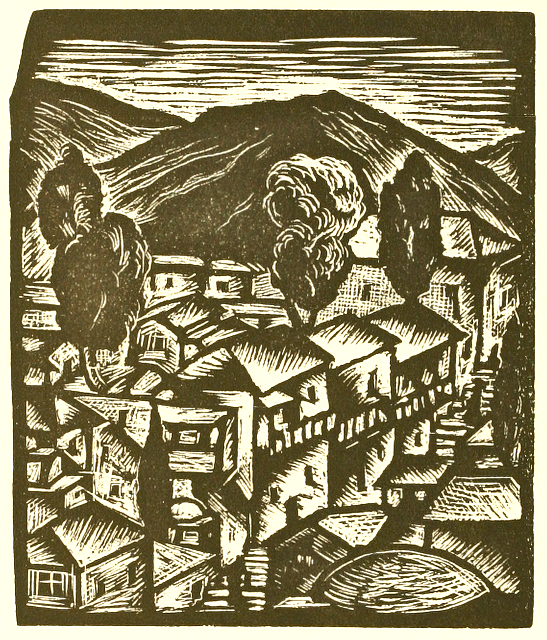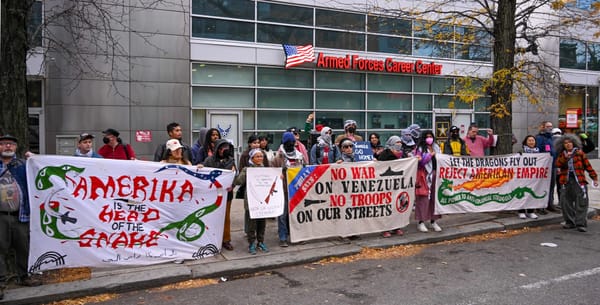Manifesto of the General Jewish Workers’ Union (Bund) in Poland
Baited by Polish nationalism and scoffed at by Jewish nationalism, the Bund never grew tired of calling upon the Jewish masses; ‘‘Do not succumb to despair; do not surrender to any feeling of panic!’’
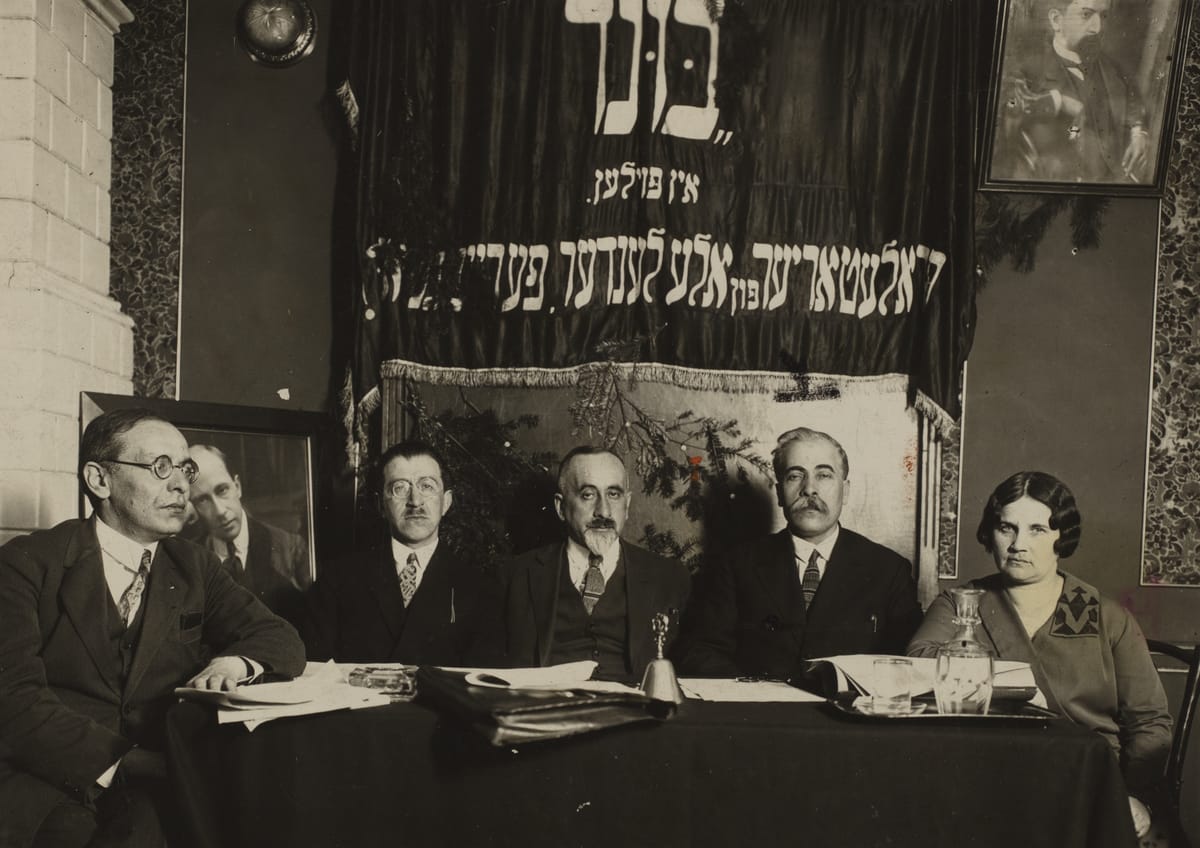
Many of the Der Spekter readers will be aware of the essay by Henryk Ehrlich, one of the interwar leaders of the Bund, titled ‘Is Zionism a Democratic Liberating Movement?’. Published originally in 1938, it was included in the memorial book for Ehrlich and Victor Alter, published in Yiddish 1951 on the 10th anniversary of their death at the hands of Stalin (we now know that Ehrlich died by suicide in prison in 1942). In 1990, this book was translated into English by Samuel Portnoy and published by the then-still-existing New York organisation of the Bund. (Portnoy also edited and translated into English the autobiography of Vladimir Medem).
Among the aforementioned essay and a great range of other articles focusing on the lives of Alter and Ehrlich, including their criminal betrayal by the Soviets, one can find another piece. At the 40th anniversary Congress of the Bund in Warsaw – and 88 years ago yesterday – a ‘Manifesto’ drafted by Ehrlich was adopted. Further details on this event can be found in Gertrud Pickhan’s history of the interwar Bund, which so far has been published in German and Polish (as far as I know, a Hebrew translation is in the works).
In transcribing the ‘Manifesto’, I have only made a few pedantic spelling corrections of Polish towns. Notes labeled 'SP' within the text were added by Portnoy. As one may expect, the work is dated, but it should nevertheless remain illuminating and inspiring to those of us who wish to continue the legacy of the Bund. What aspects one wishes to pay attention to is certainly subjective, and I hope to encourage readers to draw their own conclusions and foster discussion.
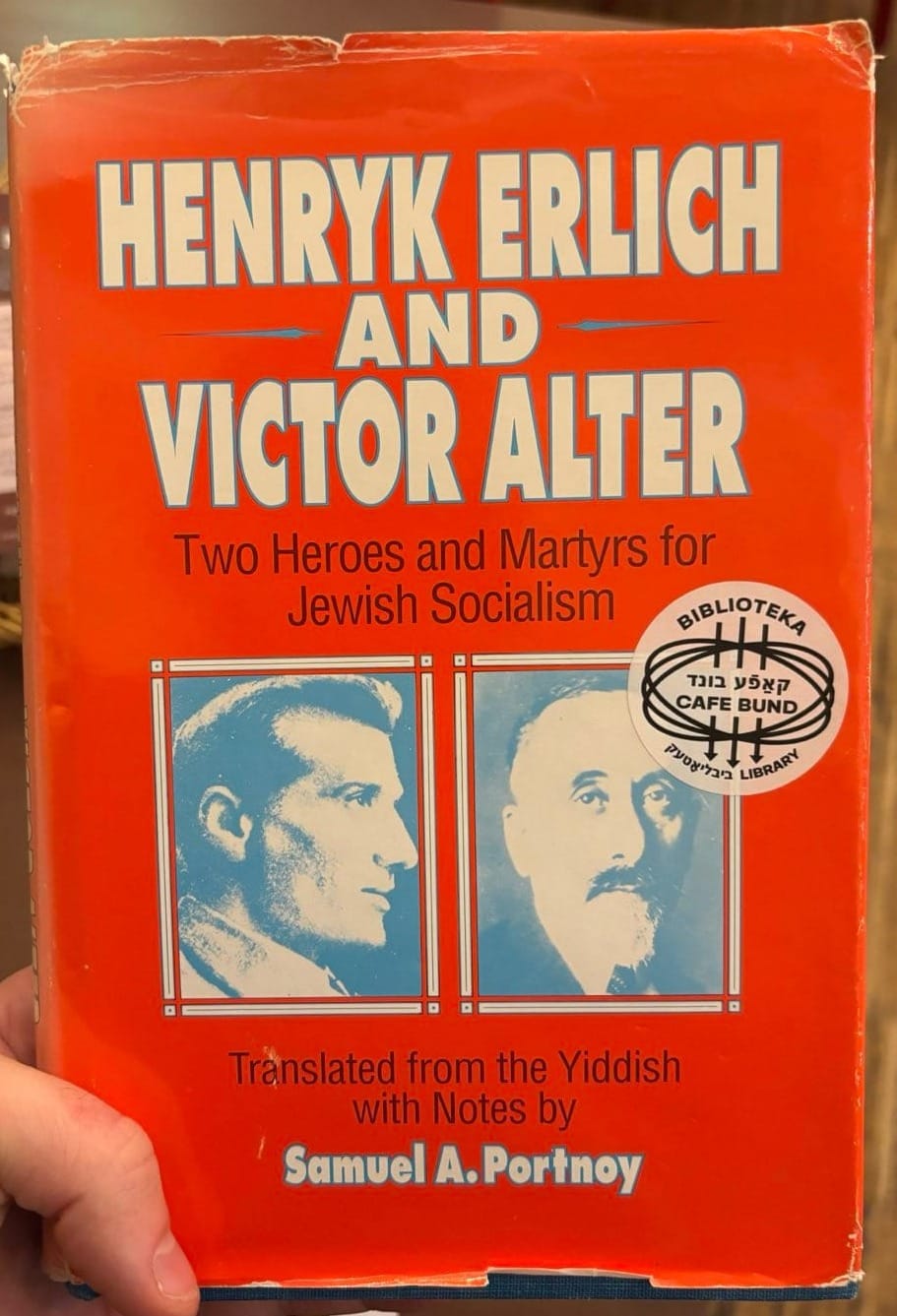
Manifesto of the General Jewish Workers’ Union (Bund) in Poland
(Adopted at the Anniversary Congress in Warsaw, November 13, 1937)
Written by Henryk Erlich, Translated by Samuel Portnoy in 1990, in Henryk Erlich and Victor Alter: Two Heroes and Martyrs for Jewish Socialism.
To the Jewish working men and working women.
To the rank-and-file of the Jewish people and working intellectuals!
At a difficult time, at an hour of destiny in your lives, the Bund turns to you.
There are people who say that the crisis is passed, that the situation has improved and has even become favorable. It is surely so for the wealthy, whether Jews or non-Jews; but not for you. The worker continues to be plagued by unemployment or low wages. The artisan and small tradesman live in poverty and want. The upcoming generation of workers has no prospect of employment, and the same calamity torments the working intellectual! Yours is a hard and bitter struggle for economic survival, while at the same time all of the dark forces of the country have pressed down upon you. They wish to destroy you, to exterminate you, to drive you from Poland. All the hardships from which Poland is suffering stem from you, they say. All the afflictions from which other nations suffer are supposed to emanate from you as well! And here is the proof: Jews are being persecuted in Germany and Rumania; Jews are being beaten in Palestine. And the peddlers of venom, the incendiaries and cannibals in Polish society do everything they can to poison your lives, to inflame in the country an infernal fire of hatred toward you.
Is it necessary to remind you of the frightful devastation which this fire has already succeeded in bringing about up to now? Need one total up the victims, enumerate the losses, make a survey of the ruins? No, it is not necessary.
Przytyk, Mińsk-Mazowiecki, Wysokie, Częstochowa, Brześć [Towns in central Poland where anti-Jewish pogroms took place - SP] - these aren’t all; they are merely the most painful stages along the road of martyrdom of the Jewish masses in Poland during the past year and a half.
But the cannibals continue to incite. They aren’t satisfied with the boycott directed at the Jewish worker and working intellectual: nor are they satisfied with the economic extermination drive against the petty Jewish laborer. Physical force is not enough for them; they desire to degrade the human being in you, to trample upon your feeling of self-worth, to turn you into pariahs devoid of legal rights and dignity. For Jewish students they’ve introduced a ghetto in the universities; and their request is… to broaden the ghetto for the Jews to encompass the whole country. They fiercely demand exceptional laws for Jews on the model of Hitler Germany. They desire to place us beyond the bounds of social and political life, outside the law. They wish to deprive us not only of the right to live but also of the possibility of self-defense and struggle.
WHAT IS THE WAY OUT?
Jewish workers and common folk: Not a single one of you has asked during these dark days: What shall be done? Is there a way out of the situation, and where should one seek it?
The Jewish bourgeois parties attempt to provide answers to these painful questions while they themselves bear a great deal of responsibility for the present condition of the Jewish masses. As a part of the bourgeoisie in the country, they share in the responsibility for the economic misery of the common people in Poland. And as Jewish politicians, they have bowed all their lives before every holder of power and have been prepared to sell out the interest of the Jewish masses to all of them. At one time they concluded ugodes [unprincipled deals and agreements - SP] with the Endeks. Later they placed themselves at the service of the Piłsudski forces. As recently as September 1935 they urged the Jewish masses on to the ballot boxes in order to elect to the Sejm the greatest anti-Semites. And to this day their representatives are ensconced in the present Sejm and Senate, bodies boycotted by the workers and peasants.
They have a simple answer to the questions that torment you. Some of them—the zealous religionists, the Orthodox, declare:
“It is God’s punishment. Jews committed sins. Hence the need to atone, to plead for mercy, to engage in fasting.”
In short, it is not they who’ve sinned, but – you. Yet everyone knows, of course, that it is the poor, the needy, who suffer most from anti-Semitism. And if anti-Semitism is God’s punishment for sins committed, then how account for the fact that the most bitter punishment has been meted out precisely to those who spend their days in heavy toil; who collapse from hunger thrice daily; who don’t even have time to sin not only in deed, but even in thought. Why is God’s punishing hand felt least of all precisely by idlers and the rich?
And the ‘‘secular’’ leaders – the Zionists – have their answer to your questions. They are bankrupt not only here but also there - in Palestine. They know already today, just as certainly as we, that Zionism is not a solution to the Jewish question. But they hold stubbornly to their position, and repeat along with all the Jew-haters:
“That’s how it is; there is a law of some kind: ‘gentiles’ must hate Jews. There is no alternative. It is necessary to flee from here.’’
And in order to win the support of the overlords: for the dissipated Zionist dreams, they approach those who are responsible for making our lives so bitter and declare:
“Correct, there is really insufficient bread for everyone in Poland. Correct, there is really a surplus of Jews in the country. So help us take the Jews to Palestine.”
To which we reply:
Jewish workers and common folk: the answer to the questions that are tormenting you is an altogether different one. But if you wish to grasp it, you must briefly step out of the confines of your Jewish misery.
Look about you and you will see—the Jews are not the ones who are suffering. The overwhelming majority in the country, whether Poles, Ukrainians, Jews, or others, is suffering from the economic crisis, from the difference between rich and poor. In the Polish, White Russian, or Ukrainian village, people live in a dismal state. Millions of others are scarcely able to eke out a daily existence. Hundreds of thousands of Polish workers are in deep despair under conditions of joblessness and, along with the landless peasants and the unemployed Jewish workers, exploring the possibility of migrating, of being able to earn by the sweat of their brows a piece of bread in the coal mines of Belgium and France or in the distant fields of Brazil or Paraguay.
Shift your gaze beyond the borders of Poland toward the wide world and you will see:
Seventy million people are languishing under the heavy boot of Hitlerism. Not only the 500,000 Jews—the whole German people has been transformed into a nation of slaves. After four-and-a-half years of Hitler rule, even fresh bread is an item of luxury in Germany. And instead of butter, the common people of Germany are fed guns.
Forty million Italians have been turned into a footstool for the “great” Mussolini. The Italian workers and peasants have long forgotten what eating a full meal is like. Which is why Mussolini's hurling their children from one battlefield to another; which is why Mussolini is calling on Italian women to bear children without letup so that there will be no lack of soldiers for his coming wars. And just as in Germany and Italy, millions of working people in other, smaller countries which have become areas of reactions are sunk in privation and bondage.
This system of oppression and enslavement is called fascism. It was devised and effectuated by the possessing class against the rebellion of the exploited masses. But fascism has not managed to eliminate a single one of the sources of anguish that have driven the masses to rise up. It has only deepened their misery and made the danger of a new world war infinitely greater. Fascism not only murdered freedom where it was victorious, but it carries murder, oppression, and enslavement wherever its criminal hand reaches. It is sufficient to mention Abyssinia, Spain, China, Danzig.
But despite the most difficult conditions, the ravished masses struggle against the incubus of fascism. With ever greater success, the masses who have retained their freedom struggle against the fascist danger. The edifice of fascism is already decaying from within. The goal is still distant, but sooner or later fascism must collapse under the burden of its crimes.
And when the hour of victory shall sound, the working people will not be satisfied with eliminating the fascist abscess from the body of today’s social order. They will, at that time, fundamentally cure the sick body and do away with the causes that gave rise to that festering abscess. And the causes are inherent, after all, in the capitalist nature of today’s economic system. They are related to the fact that the greatest riches of the world find themselves in the hands of a tiny number of people.
The common masses throughout the world are fighting today not only against fascism, but also against capitalism; not only for democracy, but also for socialism. What is happening in Poland is merely one sector of the vast front on which the struggle is being waged. And Jewish life in Poland can be correctly understood and evaluated only when seen as part of the total life of the country and as part of the tremendous conflict taking place in the world today.
The Bund calls upon you today, Jewish workers and common folk, to become a part of the throng in Poland and throughout the world that is fighting against fascism. This is our answer to the questions that are tormenting you.
THE SPIRIT OF THE BUND
The Bund arose forty years ago. Profound darkness prevailed in the boundless tsarist state. Millions upon millions of its subjects lived in abject want and slave-like thralldom. And more oppressed than all the others were the Jewish masses. Harassed by the police, exploited by the rich man, kept in a state of fear by the clericals, the Jewish worker was quieter than water and lower than grass.
The Bund infused the Jewish working man with a new spirit. The Bund filled his heart with a new faith. The Bund awakened in the Jewish worker the feeling of human dignity and, as a consequence, also his national consciousness, the need to find fulfillment within his national culture. And as an equal among equals, it introduced the Jewish worker to a new and proud world, the world of the militant proletariat.
The Bund also taught the Jewish worker how to feel and think like a citizen of the country. It taught him how to link his own destiny to the destiny of the country. It inculcated in him the unshakable conviction that in the place where he lives and in the land in which he expends his toil, he must demand his rights and stand up for his rights with all his strength.
The Bund taught the Jewish worker that his power lies not in national unity with his exploiters, the rich and their minions, the clericals, but in class struggle against the capitalists without difference of nationality; and in international unity with all toilers and oppressed.
The Jewish worker grasped the message of the Bund. While the Jewish bourgeois elements sang words of blessing for the bloody Tsar; while the Jewish clericals preached humility as the response to all the evil decrees, and the Zionists promised the tsarist ministers, people dripping with workers’ blood and Jewish blood, to lead the Jews out of Russia - Jewish workers, under the banners of the Bund, fought for freedom in the front ranks of the revolution; the Bundist self-defense groups, with guns in hand, bravely defended the Jewish masses against the wild bands of tsarist pogromshchiki.
The Bund transformed the obsequious Jewish working man into a class-conscious proletarian, into a socialist, into a revolutionist.
That remained the spirit of the General Jewish Workers’ Bund in Poland.
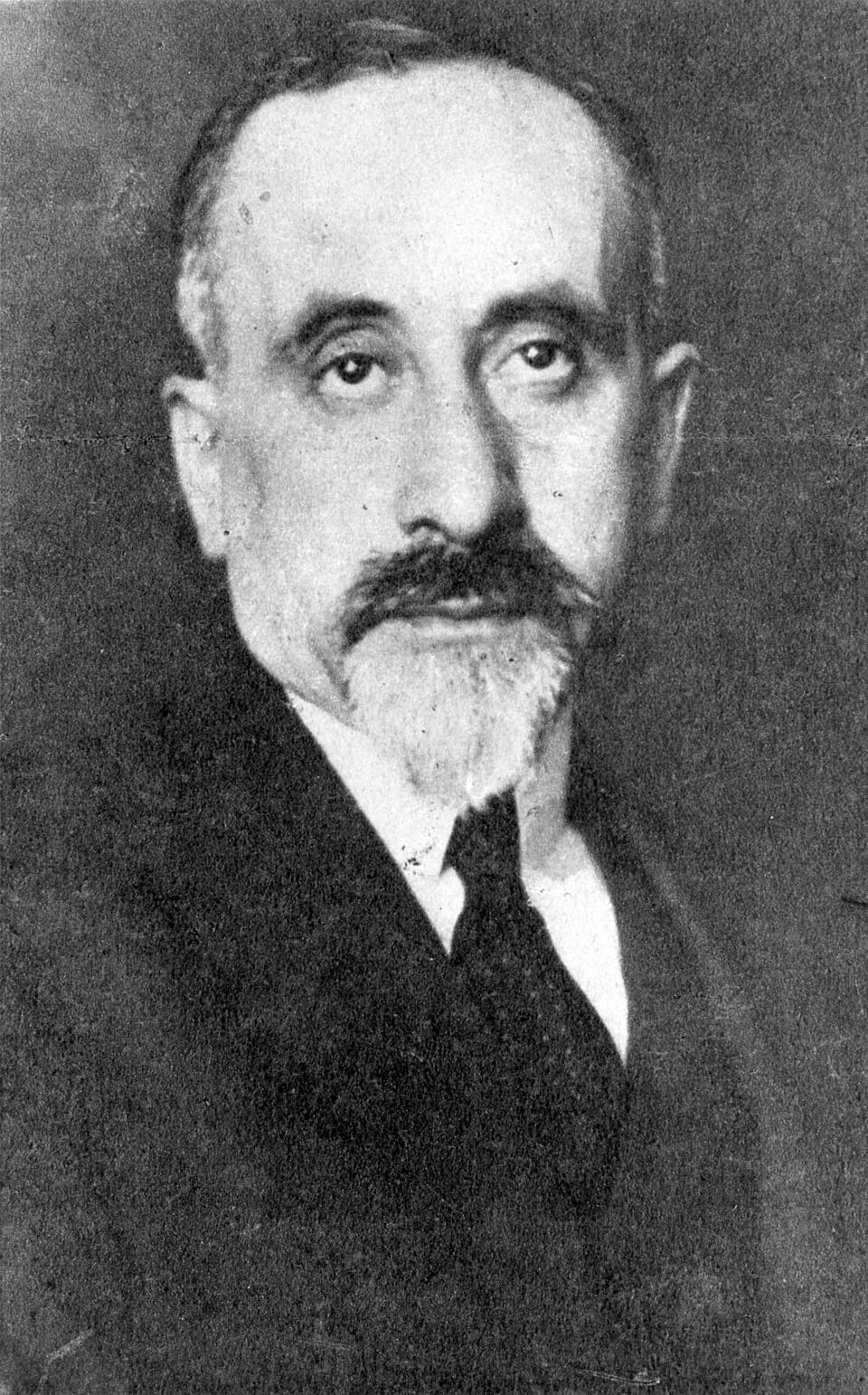
IN INDEPENDENT POLAND
In the rivers of blood that were spilled for peoples of old Russia and for the freedom of Poland, there can be found a substantial amount of Bundist blood. The Bund welcomed the emergence of independent Poland and awakened in the Jewish masses a civic feeling with regard to the country, a feeling that contains, together with the consciousness of rights. Also the consciousness of duty. The Polish bourgeoisie, which came to power in liberated Poland, had an opinion about this quite different from that of the working class. Consequently a fight for liberation – political and social – and a fight for complete equality of the Jewish masses remained the task of the Bund also in independent Poland.
IN THE HEAT OF STRUGGLE
This tremendous task did not come easy for the Bund. It was forced to put up with bitter resistance on the part of Polish reaction. Against it were aimed the poisoned arrows of Jewish reaction. It was compelled to continue its historic struggle against the despair and alienation from local Polish life which Zionism, strengthened by the seductive Balfour Declaration and the work of the Polish anti-Semites, sowed among the Jewish masses. And it was forced to put up with a bitter struggle within the working-class camp itself, at times a real civil war on the part of the communist movement which, in shocking blindness, regarded as its main task, its historic mission, the splitting and smashing of the Bund. and above all, the destruction of the whole socialist movement.
After the years of turbulent uphill progress by the international labor movement, the retreat set in. The Bund can state with justified pride that it was among the few who warned in time of the approaching danger. It offered its warnings in the working-class camp of Poland and in the international proletarian arena, and called for unity and determined action. Within Jewish life it warned against the unavoidable, indeed the fatal consequences of the cringing policy of the Jewish bourgeoisie and the dangerous game with the playing of the Zionist card.
Then came the catastrophe. Germany was inundated by the filthy waves of Hitlerism, and their poisonous foam spread out far beyond the borders of Germany. Polish nationalism raised its head and grew frenzied. A terrible panic seized large parts of Jewish society. Stampeding emigrationism celebrated victories; and as always in times of political twilight, Zionism gave expression to its jubilation. As for the Communists, the political line, indeed, the whole ideology of communism, collapsed. A large section of the fellow-travelers of the labor movement began to waver, and together with it… more than one socialist.
The Bund found itself in something like a besieged fortress. But the banner of consistent socialism did not for one moment grow shaky in its hand. Baited by Polish nationalism and scoffed at by Jewish nationalism, the Bund never grew tired of calling upon the Jewish masses; ‘‘Do not succumb to despair; do not surrender to any feeling of panic!’’ More than ever, the slogan remains valid:
“Ours is a life-and-death struggle against fascism, against every form of nationalism, and for socialism!”
Today, as always, and despite everything, the slogan remains in force:
“Salvation lies here and nowhere else, in untiring struggle for freedom, hand in hand with the working masses of Poland!”
We persevered. It took some time and the tide, slowly but surely, started to ebb. The working masses throughout the world gradually began to take hold of themselves. In Jewish society the sobering-up process developed more swiftly. The dream of Zion manifestly proceeded to come to an end. And with each passing day, the complete senselessness and criminality of the domestic policy conducted in Poland for years by the Jewish bourgeois parties became more glaring.
Then came Przytyk [The scene of a pogrom on March 9, 1936 - SP]. It was a surge of electricity passing through Jewish society and shocking it from top to bottom. And when the Bund, in response to Przytyk and to the whole policy of which Przytyk was the symbol, proclaimed the general protest strike of March 17, 1936 and mobilized in that protest a significant part of the Polish working class and the whole proletarian public of the country, the overwhelming majority of the Jewish people, in a powerful, incomparable demonstration of struggle, responded to the call of the Bund.
Since then the Jewish population of both large and small cities of Poland has more than once found itself in grave danger. It was always the Bund which strengthened and encouraged.
And when the door was opened not long ago for a Nuremberg law in Poland through the edict concerning the Jewish benches in the universities, it was the Bund which demonstrated also this time, in the magnificent mass display of October 19 this year, the readiness of the Jewish masses to defend their rights with tooth and nail.
AFTER FORTY YEARS
Forty years ago, thirteen activists of the young Jewish labor movement in Vilno, deceiving the vigilant tsarist bloodhounds, gathered in deep secrecy and established the Bund. They numbered by then far more than thirteen. The Central Committee which was elected at the First Congress of the Bund already had behind it what was for that time a rather substantial working-class movement. But all told, the Bund was still an insignificant minority in Jewish society. Today, during the time of its fortieth anniversary, the Bund appears before the Jewish and non-Jewish public of Poland as the largest party in Jewish society. After the elections of 1936 and 1937 no one will doubt that. Strengthened by the confidence of the broad Jewish masses, and with the consciousness of the historic mission of the socialist movement to become a spiritual leader and political spokesman of the overwhelming majority of every national society, the Bund declares today:
Our greetings to you and our thanks!
Our first word is to you, the thousands and tens of thousands of Bundists and members of Tsukunft and Skif in Poland. Like an iron wall, you surrounded the banner of the Bund in both good times and bad, and, with unbounded love and devotion, you fulfilled your duty toward labor's cause with exemplary revolutionary discipline. To you, the thousands of Bundists of today and of years gone by, who have been dispersed by fate over the wide world; who at whatever time may have breathed the air of the Bund and suffered for the Bund and for the cause of labor in general; and who maintained an intimate, inner connection with the Bund – greetings to all of you and our Bundist gratitude, comrades, on the occasion of our great celebration!
We greet you, proletarians of Poland, brothers in deprivation and struggle. We want you to know that we are prepared, to our very last breath, to fight alongside you for bread and true freedom for all working people in independent Poland!
We greet you, proletarians throughout the world with whom a common destiny unites us; and in the first instance, you heroic proletarians of Spain and all of you languishing in the prisons of fascist dictatorships!
Our greetings and encouragement are addressed to the working-class youth, over whom there lurk privation and fascist hyenas and who, more than any others, are threatened by the war plans of fascism! Remember, youthful brothers, that your only salvation lies in socialism!
Join the Bund!
Jewish workers in factory, workshop, and office who have hitherto stood outside our movement or outside the proletarian movement in general: we call upon you—help us to liquidate definitively the divided condition of the working-class camp which has already done so much harm to labor’s cause.
When the founders of the Bund had to decide upon a name for it at the First Congress, two motions were offered: The Union of Jewish Social Democratic Groups of Russia and The General Jewish Workers’ Bund. The congress defeated the first motion and adopted the second. In one of the first issues of the central organ of the party, the Arbeter Shtimme, we find the following substantiation of this decision:
“A Union of the Social Democratic Groups would have been a union of those top-level people standing at the head, a union of the few leaders of the working class.’’ But ‘‘the Bund can have strengths only when the whole fighting mass will enter it and not a handful of leaders.’’ The General Jewish Workers’ Bund literally means that the Bund embraces the whole Jewish proletariat, opening the doors wide for every worker who unites with others in the struggle of the proletariat for a better life. Every individual who yearns for the struggle and feels the need for it, should enter the Bund. He will be an equal and full-fledged member of the organization.”
Jewish proletarians, you who have stood apart from us until now, enter our ranks in the spirit of these wonderful words; become members of our movement, fighters sharing responsibility for the cause of the working class!
But “fighting mass" means more than working class. The urban workers will not be able to attain their emancipation if they do not succeed in winning for their struggle the large mass of the lower middle-class people in city and country: poor peasants, artisans, domestic producers, petty tradesmen, and laboring intellectuals. There are no contradictions whatever between the interests of this mass and the interests of the working class. Other than its landlessness, other than its hopelessness, this mass has nothing to lose and everything to gain as soon as the socialist system replaces the capitalist.
All toiling people unite!
But the majority of this mass has not yet, up to now, grasped the mutuality of interest linking it to the working class. Embittered, lost, it continues to wander down the blind alleys of bourgeois politics. We turn to these masses of people today:
Your salvation lies not in passivity and servility; not in empty dreams about a Jewish state built on sand and on a British cannon; not in national unity with the Jewish bourgeoisie and Jewish nationalism, but in a community of struggle with the working class, in struggle here on the ground where you live and where your fathers and grandfathers lived.
Of course the situation is miserable, and no one knows if the worst is already behind us. But do not fall into despondency and do not lose confidence. The wave is already ebbing away.
Wherever a contest is taking place in the world between socialism and fascism, we are witnessing a downhill course for fascism and an uphill movement of socialism. In the most recent days we’ve seen this in France, in Norway, in Great Britain. The kind of marvel of which a mass inspired by socialism is capable has been seen by us for sixteen months in Spain.
And in our country? Can’t you see how the multitudes that are prepared to fight for freedom are growing in our country? Haven't the echoes reached you of the courageous struggle being waged by Polish socialism against nationalistic barbarism? In the hour of grave danger to your naked existence, haven’t you seen near you in any number of cases, besides the hand of the Bund, the protecting hand as well of the Polish worker?
Therefore, abandon the hopeless and swampy roads of Jewish nationalism and forsake your passivity if you’ve hitherto been standing on the sidelines! And let all of us together – all the toilers among the Jewish people – constitute one great force which shall be capable, at the decisive moment, of throwing its weight onto the scale of events.
At this solemn hour, during the days commemorating the date when the Jewish working class broke down the walls of the spiritual ghetto and moved into the historic arena as an independent political force, we call upon you, Jewish working men and working women, Jewish toilers and laboring intellectuals, to enlist in the struggle-
Against anti-Semitism, against all manner of human hatred, against one’s own and foreign nationalism!
Against fascism in all its forms!
Against capitalism!
For a free and democratic Poland!
For complete equality of all citizens!
For the right of free national-cultural development of the Jewish masses!
For a civic coexistence of all nationalities in Poland and the world!
For a workers’ and peasants’ government!
For socialism!
